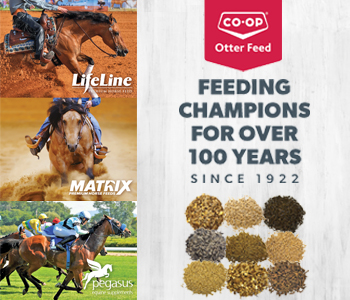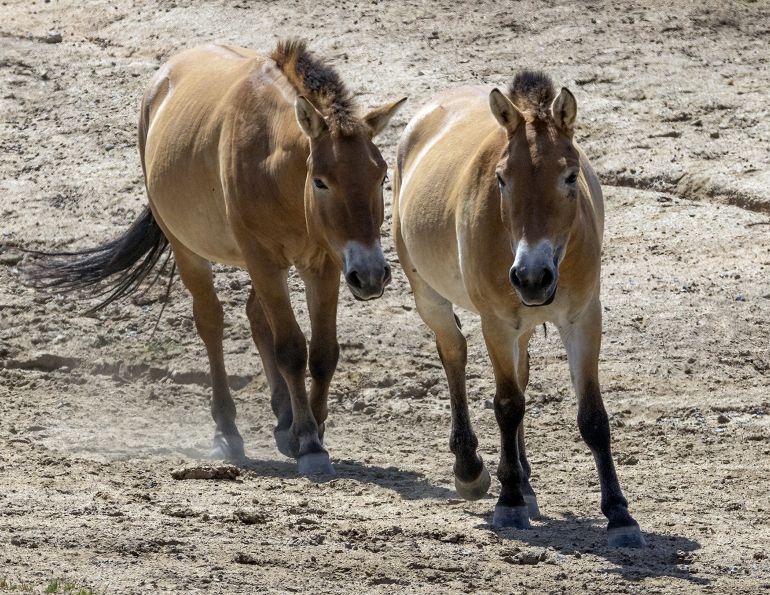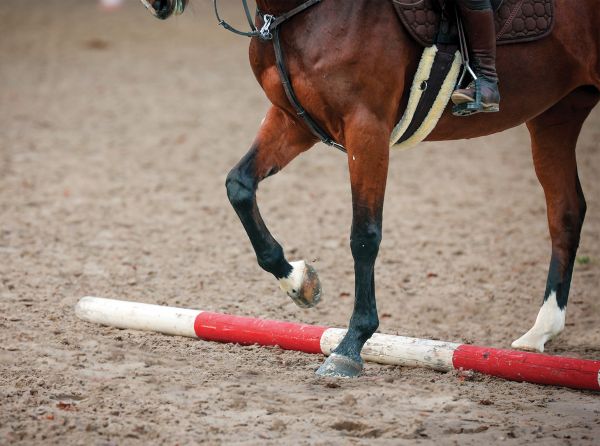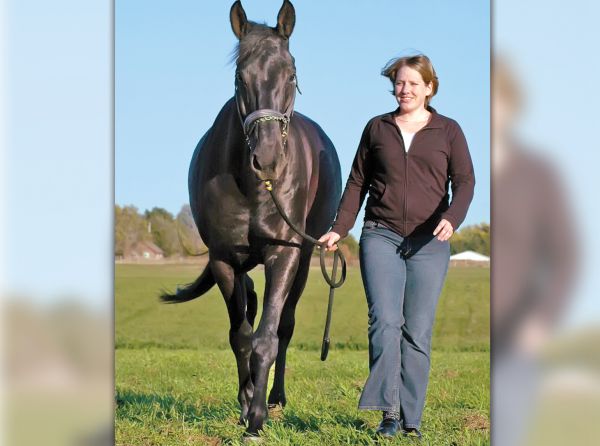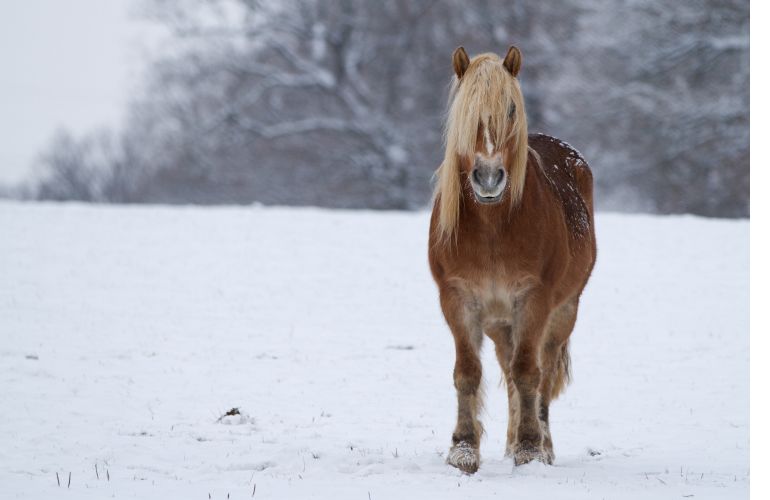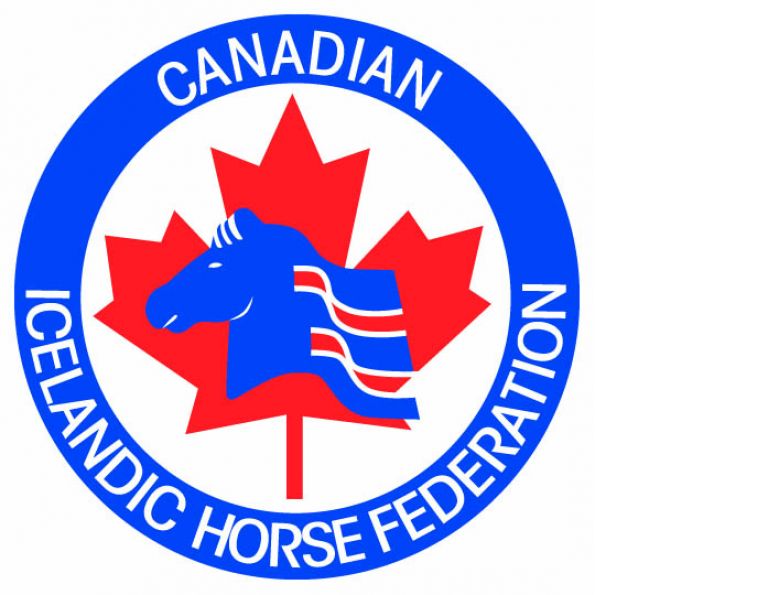February 2, 2017
With the permission of the Board to whom I am accountable and whom I serve, I would like to weigh in on the current situation regarding Equestrian Canada and the Canadian equine community at large.
Like many others, we have watched with concern as our National governing body has struggled to identify its role and purpose in the community. Are they a supporting umbrella organization or an active, and in some cases, a competing participant? We've seen it wrestling to find its bearings, dealing with an exodus of long-time, high level personnel, navigating negative press surrounding lawsuits, the timing, effectiveness and necessity of the rebranding effort, and the new governance model, which has left stakeholder organizations feeling confused, alienated and voiceless. We have seen the funds given to this entity in good faith by its members, allocated in ways that may be viewed as extravagant, and in some cases, redundant, funding projects and programs which replicate services that already exist rather than utilizing strategic partnerships. We have seen a growing level of non-confidence as stories emerge regarding internal disharmony, meetings held and votes cast by “voting members” without any consultation with the organizations they exist to represent (to date we have never been contacted on any matters taken to a vote), stances taken that do not represent the views and values of those being affected, and other similarly worrying dynamics. We as an organization have struggled to identify our value, role and purpose in the current Canadian equestrian dynamic. A number of the High-Performance communities have spoken with a clear voice regarding their concerns, so I would like to offer our perspective to the discussion.
We - all of us - as a broader equine community with the diversity of talent, passion and skills inherent to our particular groups, bring a wealth of knowledge and experience to the table and each stakeholder organization contributes something vital and strong to the overall picture. We NEED one another for this delicately balanced structure to work. Our society is further removed from the horse than ever before. It is more and more becoming an immediate gratification, “success at whatever price” driven culture which does not translate well when dealing with the investment of knowledge, time and relationship building necessary for developing effective equestrianism. At the basic levels, we need the 4-H and Pony Clubs, groups that introduce this ethic and culture of pace, discipline and hard work at the entry levels and that make horsemanship approachable, understandable and affordable to the increasingly non-horsey parents of horse crazy kids, and whose volunteers demonstrate their belief in the power of the horse/child relationship to shape lives by giving freely of their time and resources to spark that desire that leads to lifelong equestrianism, benefitting the horse community as a whole. Moving forward, we need the special interest breed and discipline groups to give those young talents a place to focus their skills and passion, whether it be reining on homebred Quarter Horses, showing Arabians in conformation halter classes, racing at the local tracks, pursuing excellent in the eventing, jumper or dressage fields, or simply riding recreationally for the sheer joy of it. We need the PTSOs to understand their regions’ unique needs and to act as liaisons with the national framework to optimize the resources available to achieve mutual goals. We need a structure that encourages and rewards the coaches and stables who see the bigger, long term picture beyond only boarding for those already engaged and with high performance aspirations, and who intentionally provide space and resources for beginners and intermediate riders to enter the sport/industry and develop strong skills and positive experiences that translate into sustainability in the form of increasing numbers of future competitors, coaches, trainers, and other industry essential members.
We need our governing body to be simply that - an umbrella organization that’s sole focus is advocating for and supporting the myriad of groups who make up the equine/equestrian industry in Canada, groups who by experience, best know their own needs and roles in the bigger picture. This governing body, whether they realize it or not, has the tools in place in the existing groups to create a “cradle to grave” pathway for everyone from recreational to competitive equestrians, and to support the “visible” industry by valuing those stakeholders who foster the development of the non-riding equine enthusiasts - those who become farriers, vets, breeders, stable owners, coaches, trainers, equine massage therapists etc. and who are vital to its continued health and success. As a national governing body, their focus must be on the factors that impact and aid ALL stakeholder organizations - things like safety standards, horse welfare and biosecurity education, international communications that truly represent their stakeholders, sustainability and transparency, and perhaps less on logos, and trend-based decision-making. Believe me when I say no one knows better the “(mis)interpretation issues” that can arise around a name than “Pony” Club. But rather than trying to pretty up the packaging while the content stays the same, we have chosen to invest our limited and member provided resources working on ways of improving our product so that the name once again becomes associated with knowledge, competence and integrity. More than a name, integrity of program and process matters. No amount of rebranding will change a skunk into a striped kitty.
We on the frontlines, the grassroots levels of this sport and industry have the power to shape its culture, and not to passively let it shape us in the name of ratings, financial gain or personal glory. If we have come to that level, we should be ashamed. If owning the podium is truly the overriding goal which drives our national decision-making, and determines our access to vital funding, we must recognize that that requires solid structure from the ground up - competent and equipped high level competitors don’t just appear out of the woodwork. They are the product of a detailed and comprehensive vision for the path to the future, one that doesn’t spend precious time and resources reinventing the wheel, but identifies, invests in and utilizes existing resources to offer integrated and cooperative youth engagement and education opportunities. If we don’t feed the system with interested, new young talent, our High-Performance aspirations rest within that small pool of only those few who currently have the resources and opportunity to move ahead, and the hopeful but undiscovered future heroes of the Canadian equestrian scene will remain that way because playing soccer or basketball was “more accessible, cheaper and easier.” High performers are the result first and foremost of identified, inspired and engaged kids, and educated, informed parents/guardians, then supported by a hierarchy of committed coaches willing to suitably progress their rising star, dedicated and selfless donors and patrons who support knowledgeable and inspired breeders to put the right combinations of talent together to succeed. They are the result of many hours logged by volunteers to provide transportation to lessons, clinics and shows that lead to the skillsets that inspire investment in this talent by coaches and owners and trainers, who create opportunity for wider experiences and opportunities that can lead to podium dreams and success. It is a team effort from the ground up by so many stakeholders; a path where each bridge is vital to the next step in retaining and increasing interest and involvement. But with the current urgency to play at the top of the game, and the culture of distraction and access to other, easier options, it is fragile and easily broken.
If we are content to minimize the value of taking the time and effort to acquire solid horse knowledge and riding skill simply to expedite the speed with which we turn out competitors capable of riding their way into the winner’s circle, we will consistently be bested by those countries who understand the value of comprehensive horse knowledge as a pivotal tool in getting the best performance possible from the horse/rider relationship. Quality will always win out over quantity. If we place inappropriately heavy weight in our training structures on only the riders and their ability to get around a course, what mechanism identifies and encourages those for whom the desire is there but the tools are not? How do we keep them engaged and participating? What systems develop the valuable and necessary community members whose skills and opportunities lie outside the performance ring - the future grooms, farriers, vets, coaches, massage therapists and breeders who need to see a place of value for themselves in our Canadian equestrian system? What does compromising and weakening our foundational knowledge base in the name of making it “easier” to succeed and “quicker” to get to the top, say to those who did the hard work to pave the way and set the standard for success for Canadian equestrians? If our capable and motivated coaches at all levels are only rewarded (whether financially or through recognition) for their production and managing of high performance talent, where is the incentive for them to move them appropriately through the process and devote the time, energy and resource investment necessary to use their hard-won skills and talents to engage, educate and evolve new participants into the system? Volunteerism is an incredible resource in Canada but even the most dedicated and visionary of volunteers get burned out when their investment is devalued or minimized.
What if our National goals were bigger, more audacious? What if our national goal went beyond serving the media masters for ratings and financial support, and went to the heart of equestrianism - creating the opportunity to introduce new generations of youth to the joy, opportunities and yes, hard work and discipline of true equestrianism, the building of a relationship based on knowledge, understanding, trust and respect for the animal around whom this sport and industry revolves? What if we were able to create a system that educated the public who drive the media demand and made equestrianism understandable and approachable to those have interest but no knowledge, ability but no opportunity? What if we were able to convince our National sport funding body that success in the High-Performance arena (although an important and aspiration-worthy component of the whole equestrian picture) is not the only criteria for making funding decisions in view of the greater sustainability issues, and that engaging the backyard trail or pony rider is as vital to our future as turning out a limited pool of top level competitors? What if our corporate view were so unified and visionary that all of our individual and unique sister organizations were able to come together under one umbrella with the goal of strengthening the entire system through our experience and willingness to work together for the greater good of the whole industry - be it sport, competition, recreation or industry contribution. I applaud organizations like Equine Guelph for taking steps to unite and create dialogue within the equestrian community but I must ask: Is this not the role to which a National governing body should aspire?
We need national representation that has not only an inclusive and broad vision, but the skill set and willingness to involve partners who bring to the table talents that may be needed but are absent. We need stakeholders to be invested because they feel valued, included and that they have a valid voice in shaping the future of our field. We need leadership that embodies the diversity of the members it represents. We need leadership that recognizes the unique geographic, financial and resource-based challenges of inclusive equestrianism in Canada (from recreational to High-Performance) and models its programming to accommodate those factors, not trying to create a “one-size-fits-all” template which benefits some levels and alienates others. We need leadership that is willing to take educated, calculated risk with the support and contribution of its stakeholders, but also having the humility to admit mistakes and embrace qualified help when offered. We need leadership that is willing to lead - and you are only leading when people are confident and willing to follow. Otherwise you are simply taking a walk by yourself.
"...All things break. And all things can be mended. Not with time, as they say, but with intention...." – L.R. Knost
Undoubtedly there are factors and dynamics at play to which we are not privy, as leadership of any organization is like an iceberg - you only see about 10 percent of it above the surface... but the bottom line is that the level of mistrust, anger and concern being expressed by a broad and diverse base of the stakeholder members should serve as a red flag which cannot be ignored by those who are entrusted with the present and future of our equestrian community in Canada.
The Canadian Pony Club, regardless of the current factors at play, will continue to endeavour to offer strong, foundational theory and riding education, with the assistance of our dedicated volunteers and the visionary coaches, stable owners and industry talents who share our desire for a sustainable future for equestrianism in Canada. Although we, like many member funded, volunteer organizations struggle with finance and resource availability, we still have faith in the power of the greater equestrian community to capture the vision going forward, and to heal and repair the damage done within the system in which we operate. We pledge our support to the effort toward responsible and accountable leadership, and welcome the support, physical or financial, of all who believe in the power of grassroots exposure to horsemanship to Engage, Educate, and Empower youth, and develop not only skilled and knowledgeable horsemen and women, but to better our society in general through the development of the attributes of Loyalty, Character and Sportsmanship based in a true and sincere passion for horses and equestrianism.
Respectfully submitted,
Kim Leffley
National Chair
Canadian Pony Club
Photo: Shutterstock/Fotokostic






